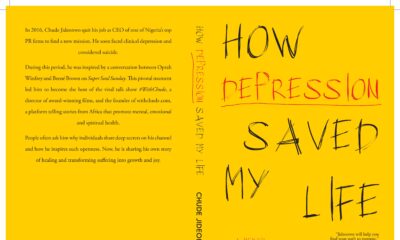News
Chimamanda Ngozi Adichie Speaks on Poor Power Supply in NY Times Article “Lights Out in Nigeria”
 If you live in Nigeria or have visited, you know that inadequate power supply is an issue that people face incessantly.
If you live in Nigeria or have visited, you know that inadequate power supply is an issue that people face incessantly.
Renowned author, Chimamanda Ngozi Adichie speaks on the issue in her article featured on New York Times, titled “Lights out in Nigeria.”
She reveals that just like the average Nigerian, she experiences the inconveniences that arise from the “no light” situation.
Here are excerpts from the article:
WE call it light; “electricity” is too sterile a word, and “power” too stiff, for this Nigerian phenomenon that can buoy spirits and smother dreams. Whenever I have been away from home for a while, my first question upon returning is always: “How has light been?” The response, from my gateman, comes in mournful degrees of a head shake.
Bad. Very bad.
The quality is as poor as the supply: Light bulbs dim like tired, resentful candles. Robust fans slow to a sluggish limp. Air-conditioners bleat and groan and make sounds they were not made to make, their halfhearted cooling leaving the air clammy. In this assault of low voltage, the compressor of an air-conditioner suffers — the compressor is its heart, and it is an expensive heart to replace. Once, my guest room air-conditioner caught fire. The room still bears the scars, the narrow lines between floor tiles smoke-stained black.
Sometimes the light goes off and on and off and on, and bulbs suddenly brighten as if jerked awake, before dimming again. Things spark and snap. A curl of smoke rises from the water heater. I feel myself at the mercy of febrile malignant powers, and I rush to pull my laptop plug out of the wall. Later, electricians are summoned and they diagnose the problem with the ease of a long acquaintance. The current is too high or too low, never quite right. A wire has melted. Another compressor will need to be replaced.
For succor, I turn to my generator, that large Buddha in a concrete shed near the front gate. It comes awake with a muted confident hum, and the difference in effect is so obvious it briefly startles: Light bulbs become brilliant and air-conditioners crisply cool.
The generator is electricity as electricity should be. It is also the repository of a peculiar psychology of Nigerian light: the lifting of mood. The generator is lord of my compound. Every month, two men filled with mysterious knowledge come to minister to it with potions and filters. Once, it stopped working and I panicked. The two men blamed dirty diesel, the sludgy, slow, expensive liquid wreathed in conspiracy theories. (We don’t have regular electricity, some say, because of the political influence of diesel importers.) Now, before my gateman feeds the diesel into the generator, he strains it through a cloth and cleans out bits of dirt. The generator swallows liters and liters of diesel. Each time I count out cash to buy yet another jerrycan full, my throat tightens.
I spend more on diesel than on food.
Read the full article on New York Times




















